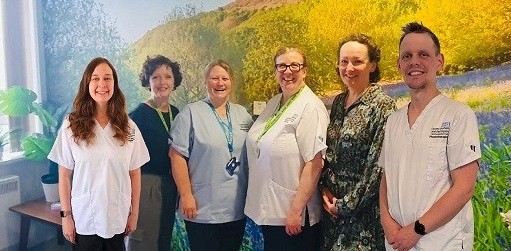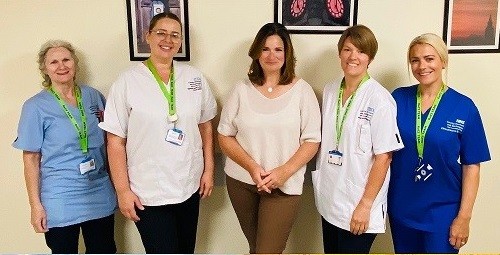This June marks four years since the launch of the Rehabilitation after Critical Illness (RaCI) service at County Durham and Darlington NHS Foundation Trust (CDDFT).
Since 2021, mirrored multi-disciplinary teams at University Hospital of North Durham and Darlington Memorial Hospital have been delivering specialist, patient-centred rehabilitation to support people recovering from critical illness.
The service was developed in recognition of the complex challenges faced by many intensive care patients, particularly those at risk of Post-Intensive Care Syndrome (PICS).
PICS includes a wide range of physical and psychological symptoms such as profound muscle weakness, neuropathy, communication difficulties, sensory overload or deprivation, pain, hallucinations, and sleep disturbances — all of which can significantly delay recovery.
Providing an holistic approach to care
The RaCI service provides a truly holistic approach to care, delivered by a dedicated multi-disciplinary team.
This includes physiotherapists, speech and language therapists (SALT), dietitians, a nurse specialist, therapy associate practitioners, a critical care counsellor, and intensive care consultants.
Together, they offer personalised support during and after a patient’s time in critical care.
Speech and Language Therapy plays a key role in early recovery. The use of speaking valves for ventilated patients and bedside assessments such as Fibreoptic Endoscopic Evaluation of Swallowing (FEES) help restore communication and enable safe return to eating and drinking.
These early interventions improve patient wellbeing and reduce risks associated with delayed recovery, such as aspiration or prolonged hospital stays.
Recovery isn’t limited to the bedside. The RaCI team regularly supports outdoor visits, often involving family members or even pets.
These visits offer both emotional comfort and a chance to practise mobility in a more natural setting, boosting confidence and supporting mental wellbeing.
In addition, the team recently led a sustainability project that reduced unnecessary printing while improving access to important patient and family resources. This benefits both RaCI and non-RaCI patients across critical care.
Collaboration, innovation, and compassion
As the service celebrates its fourth anniversary, it stands as a powerful example of what can be achieved through collaboration, innovation, and compassion.
A heartfelt 'thank you' goes to all those involved in delivering and supporting the service — including the wider intensive care and ward teams who help patients every day on their journey to recovery.

